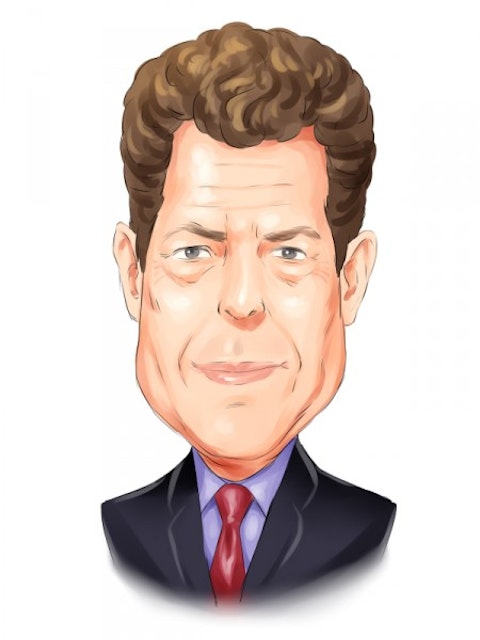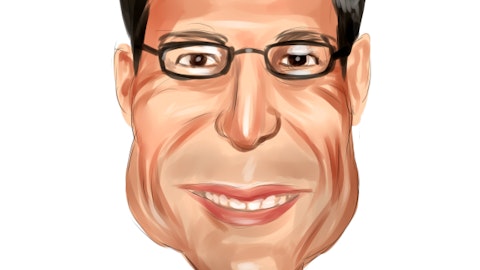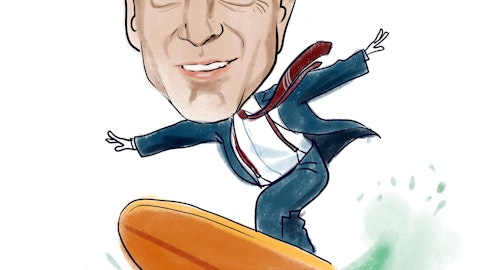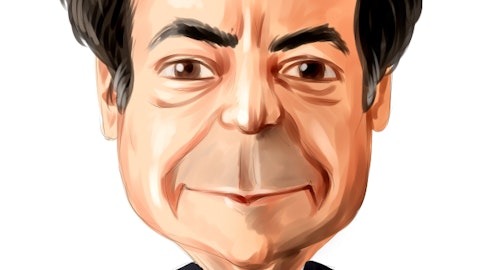Billionaire Dan Och’s Hedge Fund Firm Is Doing Great As His Funds Trail The Market (Forbes)
For billionaire Daniel Och’s hedge fund firm, Och-Ziff Capital Management, 2013 was a pretty good year. The publicly-traded hedge fund firm saw its assets under management balloon to $40.6 billion from $31.9 billion a year ago. Helped by rich performance fees, an increase in assets under management, and a decrease in reorganization costs, in the first nine months of 2013, Och-Ziff Capital Management earned $470.6 million after losing $881.9 million in the first nine months of 2012. Shares of Och-Ziff Capital Management soared in 2013. The stock increased by more than 55%. In the last two years, Och-Ziff Capital Management, which suffered large redemptions after the financial crisis, has seen its stock rise by more than 70%. The stock on Friday changed hands for $14.75 and remains well below its 2007 IPO price and even under its 2010 high, but investors who bought it in the last two years have enjoyed some good performance.
Smart enough to avoid a zombie bite? (FT Alphaville)
Check out a moment of honesty from sartorial legend and hedge fund veteran Michael Novogratz of Fortress. One paragraph from Institutional Investor captures both the central contradiction of hedge funds and the misguided attempt by institutions to pretend it doesn’t exist: “It’s hard to teach young traders this,” he says, referring to macro investing. “You’re either good at it or you’re not.” Most asset managers won’t say they’re smart — at least, not in public — because their investors want to hear about a formal investment process that can be taught and repeated. They want alpha to be sustainable. Of course, if the process of delivering can be easily documented, others can – and will – copy it, and returns should go down over time.
Falcone In Line For $20M-Plus In Bonuses (FINalternatives)
Phil Falcone may not be a hedge-fund manager anymore, but he’ll still be paid handsomely next year. The Harbinger Capital Management chief, who accepted a ban from the hedge-fund industry last year, could be paid more than $21 million next year as chairman and CEO of Harbinger Group, the permanent-capital vehicle he set up in 2009. While Falcone’s deal with the SEC bans him from managing a hedge fund, he was permitted to continue to run the listed entity. Falcone will receive a $500,000 base salary for the fiscal year ending Sept. 30 of this year, and is eligible for up to $20.75 million in bonuses, according to a regulatory filing last month by Harbinger Group.
Brevan Howard shares spoils of £60.4m pay pot (CITY A.M.)
The UK arm of Europe’s largest hedge fund Brevan Howard divvied up a smaller £60.4m profit for its partners last year after a fall in revenues at the business. Brevan Howard Asset Management paid £36.4m in profits to members and £26.9m to cover operating expenses for the 12 months ending 31 March 2013, according to accounts filed at Companies House, on top of £38.4m paid in total as salary. The average number of partners at the firm during the year was 46, according to the accounts, though some are corporate entities rather than traders.
Major Philanthropist Refuses To Join Gates’ Charity Pledge Because It’s ‘Practically Worthless’ (Huffington Post)
Before wildly successful and generous hedge fund owner Robert W. Wilson took his life, Bill Gates tried recruiting him to pledge half his wealth to charity, an initiative the business mogul deemed “practically worthless,” BuzzFeed recently revealed in an exclusive story. Wilson, a philanthropist who donated about $600 million over the course of his life, committed suicide at 87 by jumping from his Central Park West apartment on Monday, according to The New York Times. In the days following his death, BuzzFeed obtained and published a number of emails Gates and Wilson exchanged in 2010 that elucidated Wilson’s disdain for the Giving Pledge.
U.K. Agency Struggles in Fight Against Insider Trading (Wall Street Journal)
Carl Linderum was getting ready for work one morning at his London home when he heard a pounding on his door. He figured the group of men outside were employees of his gas provider, there to badger him over a disputed bill. In fact, they were plainclothes police officers and agents from the U.K.’s financial regulator. They had come to arrest the 36-year-old trader, who ran a small hedge fund, for suspected insider trading. The arrests last February of Mr. Linderum and a colleague led to the collapse of their roughly $100 million hedge fund, Lodestone Investment Partners LLP. Seven people lost their jobs.
Who’s buying Hertz? (CNBC.com)






